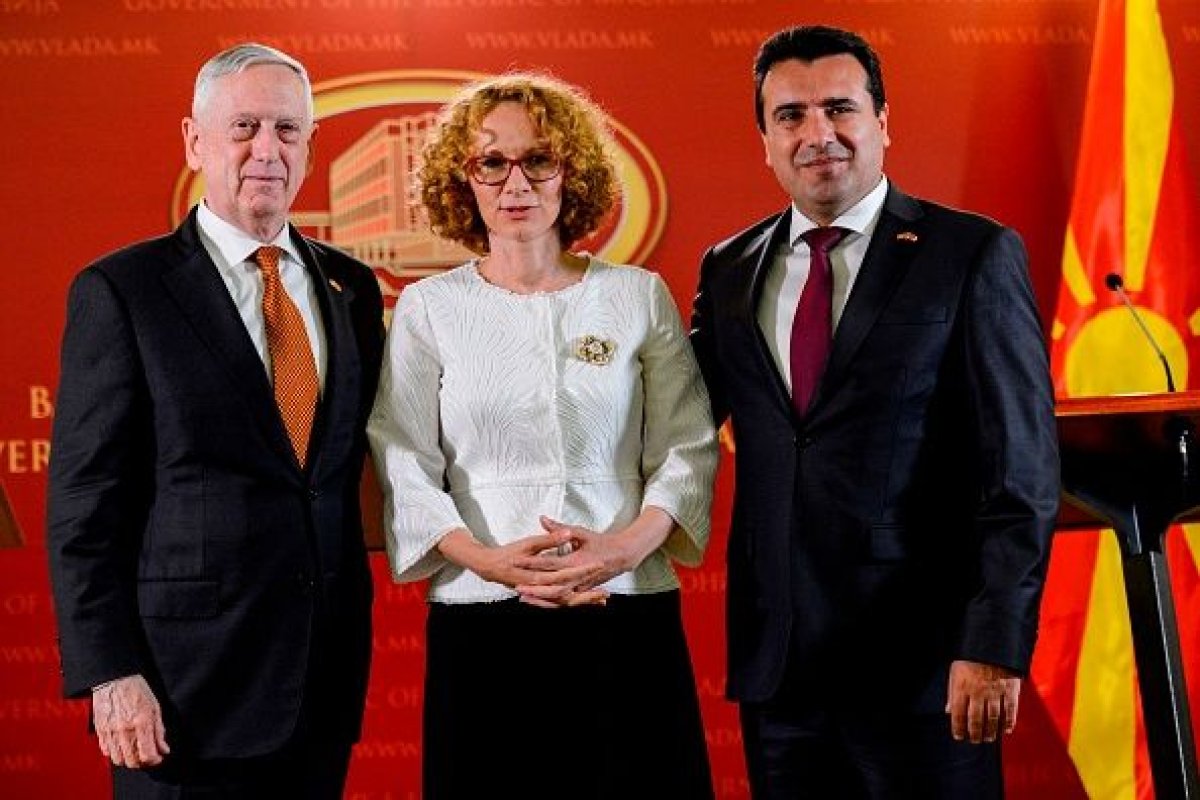Secretary of Defense James Mattis visited Macedonia on Monday and issued a rebuke of Russia's attempts to prevent the country from joining the North Atlantic Treaty Organization (NATO).
Macedonia will hold a referendum on September 30 in which citizens will decide whether to officially change the country's name from the Former Yugoslav Republic of Macedonia (FYROM), as it has been called since it gained independence from Yugoslavia in the 1990s, to the Republic of Northern Macedonia. The outcome of the vote will determine if the small country of 1.8 million inhabitants can join the Western military alliance.
In anticipation of this historic deal, NATO officially invited Macedonia to join the military alliance on July 11. However, NATO's expansion eastward has irked Russia, whose leadership views NATO as its primary adversary. Moscow has been accused of attempting to sow discord to the name deal in both Greece and Macedonia. Around the same time NATO was inviting Macedonia to become a member, Athens expelled several Russian diplomats for allegedly offering bribes to opposition figures who oppose the deal and organizing rallies against it. Moscow has also allegedly enlisted the support of the Greek and Macedonian Orthodox Churches to oppose the name deal.
"We do not want to see Russia doing there [in Macedonia] what they have tried to do in so many other countries," Mattis told reporters Monday about Russia's attempts to interfere in the politics of foreign countries. "No doubt that they have transferred money and they are also conducting broader influence campaigns," he added about Macedonia.
During his visit Monday, Mattis also said that the U.S. plans to expand cooperation with Macedonia on cybersecurity issues. This cooperation would help prepare the country for its accession into NATO and other international organizations.
Russia has denied any attempts to influence Macedonian politics, but the country's ambassador has been a vocal critic of the country's plan to join NATO.

Macedonia has been without a permanent name due to a longstanding dispute with Greece over which country can lay claim to the name Macedonia. But the leaders of both countries reached a historic agreement in June that put an end to the decades-long standoff that prevented Macedonia from joining both NATO and the European Union. Athens and Skopje settled on the Republic of Northern Macedonia.
Now, all that needs to happen for the name change to be official is for Macedonians to vote "yes" in the referendum that will take place in a little over a week. The country can then alter its constitution to reflect the new name, a move that would begin the NATO accession process. But hundreds of new websites have popped up in Macedonian over the past months that urge voters to oppose the deal and portray the name change as an existential threat to the country. Many analysts believe Russia is behind this disinformation campaign.
Polls suggest that the majority of citizens will vote in favor of the name change in the upcoming referendum, but the deal has serious opponents in both civil society and government. At least 50 percent of the country must vote in order for the results to be legitimate. Western leaders, including German Chancellor Angela Merkel, have been visiting the region to encourage citizens to get out and support the name change. During a visit on September 8, Merkel stressed that Macedonia's stability is essential for the stability of Europe.
Uncommon Knowledge
Newsweek is committed to challenging conventional wisdom and finding connections in the search for common ground.
Newsweek is committed to challenging conventional wisdom and finding connections in the search for common ground.
About the writer
Cristina Maza is an award-winning journalist who has reported from countries such as Cambodia, Kyrgyzstan, India, Lithuania, Serbia, and Turkey. ... Read more
To read how Newsweek uses AI as a newsroom tool, Click here.








